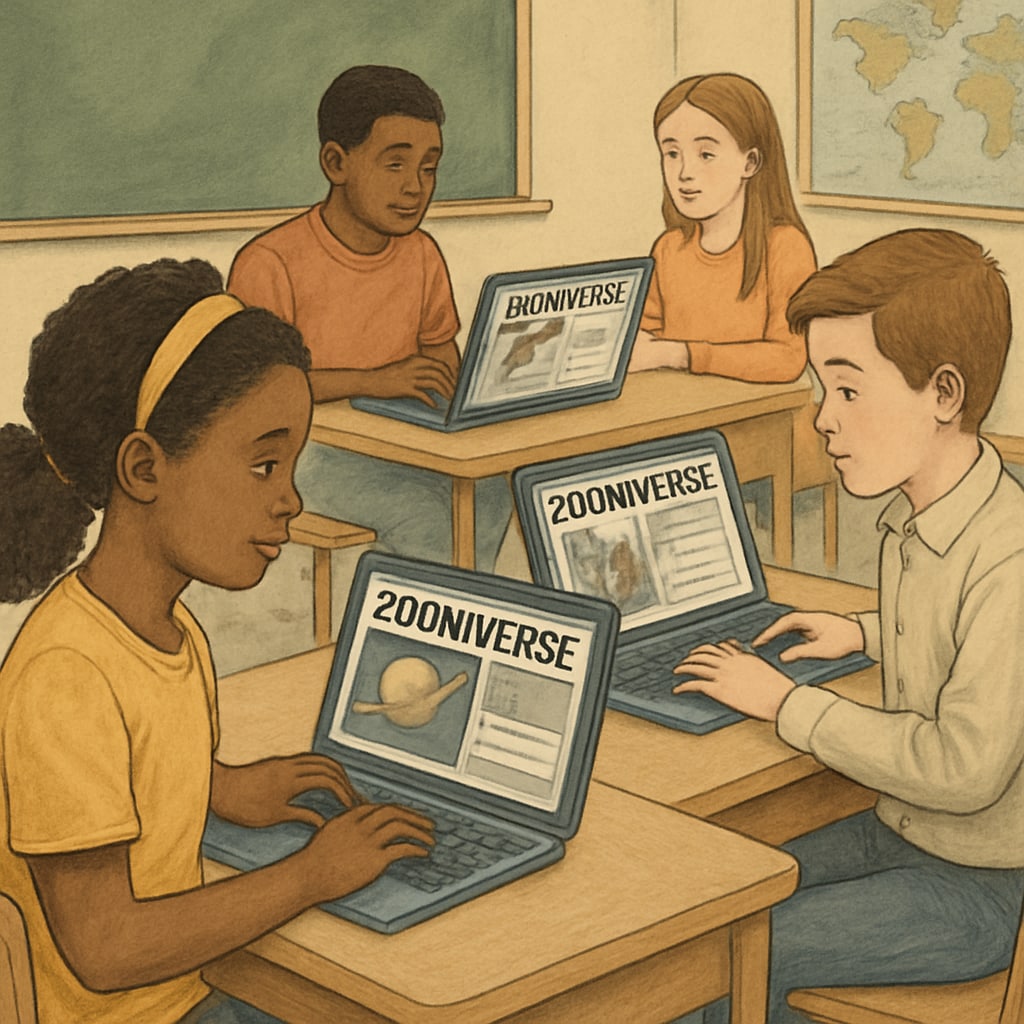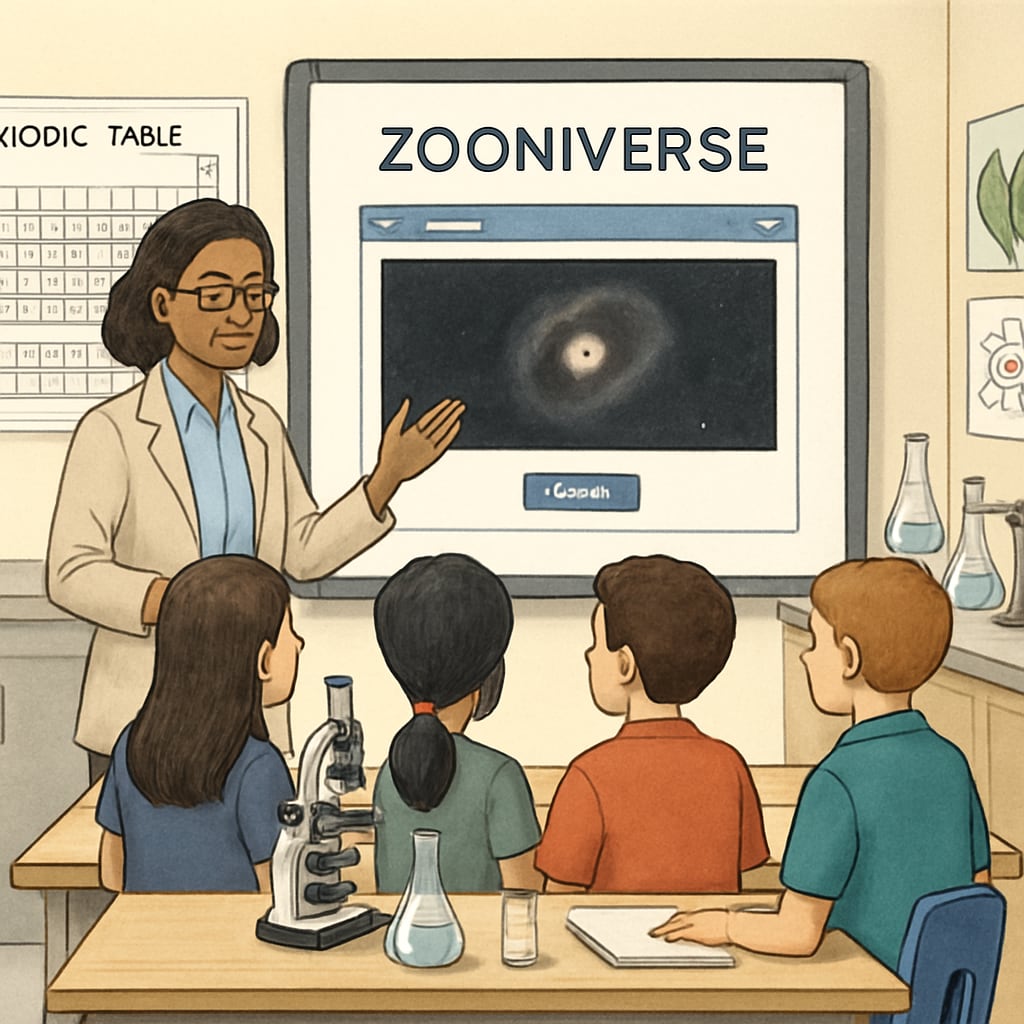Imagine a classroom where K12 students actively participate in real-world scientific research, contributing to projects that uncover new galaxies, monitor wildlife populations, or decode ancient texts. Platforms like Zooniverse make this vision a reality. By enabling students to engage with citizen science projects, Zooniverse not only enhances their scientific literacy but also nurtures critical thinking and problem-solving skills. Let’s explore how this platform can transform science education and inspire the next generation of innovators.
What Is Zooniverse and How Does It Work?
Zooniverse is the world’s largest and most popular platform for citizen science projects. It connects researchers with volunteers from around the globe to collaborate on scientific studies. Participants can contribute to projects in fields such as astronomy, biology, history, and climate science, often requiring tasks like classifying images, transcribing data, or analyzing patterns. The platform is intuitive, making it accessible even to younger students with little to no prior experience.
For educators, Zooniverse offers a wealth of opportunities to incorporate hands-on learning into their curriculum. By engaging in these projects, students learn that science is not limited to textbooks or laboratories—it’s a dynamic and collaborative process that they can actively partake in.

Why Citizen Science Matters for K12 Education
Citizen science refers to the practice of involving the public in scientific research, often to help analyze large datasets or solve complex problems. For K12 students, participating in citizen science projects offers numerous benefits:
- Hands-On Learning: Students gain practical experience by working on real-world problems, which enhances their understanding of scientific concepts.
- Critical Thinking: Analyzing data and drawing conclusions fosters critical thinking and problem-solving skills.
- Collaboration: Many projects encourage teamwork, helping students develop communication and cooperation skills.
- Motivation: Knowing their contributions matter in actual scientific research can inspire students to pursue STEM careers.
Moreover, citizen science projects align with Next Generation Science Standards (NGSS), emphasizing inquiry-based learning and the application of knowledge in real-world contexts.
Incorporating Zooniverse Into the Classroom
Integrating Zooniverse into your curriculum is easier than you might think. Here are some practical steps for educators:
- Select a Project: Choose a project that aligns with your subject area or students’ interests. For example, astronomy classes might explore “Galaxy Zoo,” while biology students could work on “Snapshot Serengeti.”
- Set Clear Goals: Define what you want students to learn, whether it’s data analysis, teamwork, or understanding a specific scientific concept.
- Provide Guidance: Walk students through the platform and demonstrate how to contribute to their chosen project.
- Encourage Reflection: Have students share their findings and reflect on the impact of their contributions during class discussions or through written assignments.
By embedding Zooniverse projects into lessons, educators can create a more engaging and impactful learning experience that connects students with the broader scientific community.

Success Stories: Students Making a Difference
Zooniverse has already inspired countless students to make meaningful contributions to science. For example, in one project, high school students helped identify previously unknown star systems by classifying images from space telescopes. In another, middle schoolers contributed to a study on penguin populations by analyzing camera trap photos from Antarctica.
These experiences not only deepen students’ understanding of scientific processes but also empower them to see themselves as capable contributors to global research efforts. As a result, many students develop a newfound passion for science and a desire to pursue STEM careers.
The Future of Citizen Science in Education
As technology continues to evolve, platforms like Zooniverse will play an increasingly important role in education. By democratizing access to scientific research, these tools enable students from diverse backgrounds to participate in cutting-edge studies. They also highlight the importance of collaboration between scientists, educators, and the public in addressing global challenges.
Incorporating citizen science into K12 education is not just about teaching science—it’s about empowering students to think critically, act collaboratively, and contribute meaningfully to the world around them. With platforms like Zooniverse, the future of science education looks brighter than ever.
Are you ready to inspire your students to become the scientists of tomorrow? Visit Zooniverse today and start exploring the possibilities.


